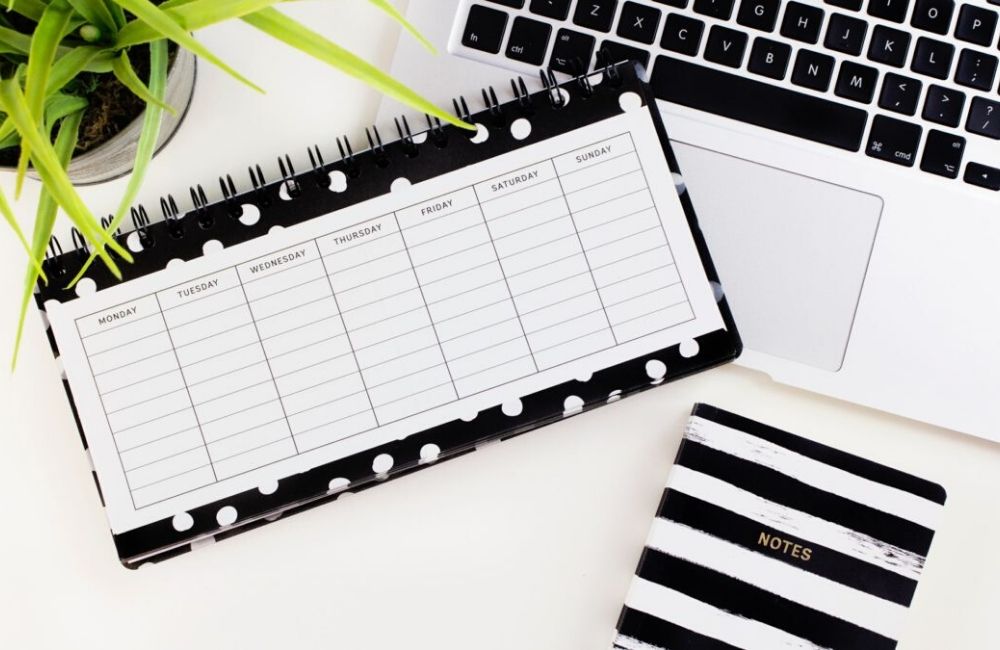Plan Your Week Effectively before You Start Your Week – and Achieve those Goals.
This article was originally posted on the Gen-I Blog.
I used to have those Monday mornings – we’ve all had them – in which I’d sit down at my desk and think ‘okay then, where should I start?’. I’d often enough open up my emails and, before I knew it, it was lunchtime.
Luckily enough, I’ve left those days long behind me. Those days in which I spent more time thinking what I should be doing than doing anything at all.
The reason for this was that I learned how to plan my week effectively. And with this little technique, I managed to beat my procrastination and, by the following weekend, feel a lot better about what I’d spent those five days doing. Every Friday, stepping away from my laptop, I realised that that ability to plan had got me to achieve a lot.
Now, I’d like to share with you how you can plan your week effectively too – and why. Because it’s not just a case of knowing what you need to do. It provides a massive change in mindset too.
Sunday Nights: The Best Time to Plan Your Week Effectively.
I love Jim Rohn’s little line, don’t start the day until you have it finished. The same applies to weeks and even months. Don’t get started unless you’ve finished to plan your week effectively first. Don’t dive into your week until you know what it’s going to look and feel like at the end.
That’s why Sunday nights are the best time to plan your week.
This is the time in which you are going to put onto paper your weekly intentions – the goals and motivating visions for the short and longer terms. As I outline in the 5is of the HOW Skill Set, it’s here that you need to break down what needs to happen and look at where you’re going to complete those tasks.
When you start to plan your week effectively, you’re looking to include both the day-to-day tasks and those that are longer term. Schedule out the time in which you are going to complete both types of task. Otherwise those long-term ones will fall by the wayside.
Why Having a Weekly Plan Cuts Down Procrastination and Helps You Achieve Your Goals.
There is a crucial point about psychology here. Without an action plan, the risk is that, starting your day, you’ll be more reactive and more distracted. Exactly as I once did – and exactly as seventy percent of the workforce do. You’ll spend more time looking at your emails and taking phone calls than cracking on with what you need to do.
Having a plan helps you focus. It gives you something for aim for; it gives you direction.
Simply enough, if you don’t have a schedule, there is no reason why you should stick to one. And the result of this is that you end up doing not very much.
However, the knowledge that you have such and such to finish – in a certain amount of time – provides a motivating factor for greater productivity. The wonderful Parkinson’s Law – which states that a task expands to fill the time allotted for its completion – is relevant here. Planning for a reduced amount of time available, you’re much more likely to just get on with it – and it’s much less likely to expand to fill the day.
Start the Day without the Emails.
Being able to plan your week effectively means that you sit down to work and know exactly what you need to do. With clearly defined tasks, no thought – that ‘okay then, where should I start?’ – is required.
Try getting into the office with five things that need to be completed by ten thirty. Rather than an hour and a half on email, you’re much more likely to commit that time to cracking on.
The benefit of this strategy is that it is both highly impactful and influential. You’ll have had a highly productive morning with no distractions. And you’ll have achieved so much! You’ll be one step closer to your larger goal. But you’ll also have a much more productive afternoon, energised and knowing that you’re on track.
Why a Positive Mindset Loves a Plan.
One of the things that a lot of the literature on productivity often overlooks about planning is the powerful role of your mindset.
When you are planning, you are not just planning. Rather, when you are planning you are supporting a mindset that enables greater productivity. You are envisioning what ‘done’ looks like, you are anticipating the feeling – the reward – of success.
Yet, when I tell my clients to plan, they often load it up with so many things that they never manage to execute them all. They end up returning to me down in the dumps because they didn’t achieve everything they wanted to.
My response is usually the same: look back to the plan you made. Rather than looking at the twenty things that they didn’t achieve this week, we look through together the eighty things that they did. And rather than feeling inadequate, they suddenly start feeling that they’ve done awfully well.
Also you should be aware of a stage phenomenon called the Zeigarnik effect, which states that people remember uncompleted or interrupted tasks better than completed tasks. Meaning you will always remember the half-finished task before the completed task; your mind ‘discards’ completed tasks making them harder to remember, however those still on your to do list linger in your mind.
Schedule Time For Rewards Too.
Retaining and reviewing your plan at the end of the week is essential in a business world in which a feeling of closure in tasks is not always present. We don’t do the work of a mechanic, say, in which a broken car comes in and you feel the achievement of sending a fixed car back out. You need to create these rewards for yourself and draw attention to your achievements each week.
Rather, you have to make the effort to schedule your moments of closure and success. That’s why reviewing your achievements is a crucial part of knowing how to plan your week effectively. Because without that, you’ll never fully appreciate everything you’ve achieved.
How to Plan Your Week Effectively to Actually Achieve Your Goals? Action Points.
- Make Sunday nights plan nights. Know exactly what you will be doing when you wake up on Monday morning – both those nitty gritty tasks and the ones that’ll take you towards your goal.
- Block out specific time slots. You’ll be filling these with your tasks – so that they don’t overspill.
- Review your achievements at the end of the week and remember to reward yourself!
This article was originally posted on the Gen-I Blog.


